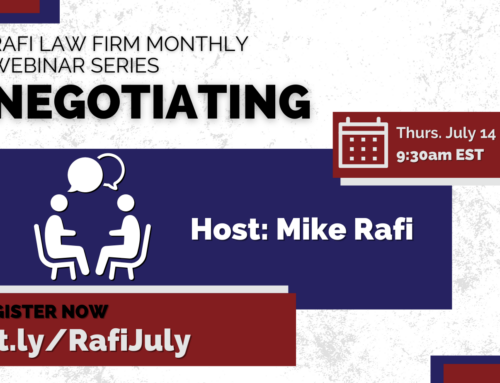The vast majority of people have no experience with civil lawsuits. The procedural intricacies of how a lawsuit plays out have long confounded law students, and even many practicing lawyers. It is no surprise, then, that non-lawyers who are forced to resort to the courts for compensation for personal injuries likewise come into the process with no idea of what to expect, or how long their case will take.
There is no magic answer to how long a given case may take to get to trial—or if it will even get there. It may be settled before a lawsuit is filed, or settled at mediation before trial. In extreme instances, a judge may dismiss the case without letting it get to a jury trial if s/he determines the evidence would not properly support a jury award in your favor.
How A Personal Injury Case Works:
To commence any injury lawsuit, your attorney must draft and file a lawsuit in the proper court. Then, a process server must personally serve each defendant with a copy of the suit (this can take a matter of days or a matter of weeks, or longer, depending on how difficult the defendant is to find, and whether they are actively evading service). Once served with the suit, a defendant has 30 days to file an answer to the suit.
The “discovery” period begins the date the first defendant files an answer. Discovery is the stage of the case when written information and documents are exchanged and sworn witness testimony is secured by taking depositions. Under Georgia law, the absolute minimum amount of time a case can be in discovery is 6 months (in federal court it can be even less). In reality, discovery usually lasts longer because one or both parties—usually the defendant—asks the court for more time.
Once discovery is complete, the case is put on the court’s trial calendar, generally in the order of how long the case has been on the court’s docket, or the date the case was filed. The parties are essentially at the mercy of the court to decide when the case will go to trial. It may be two months, it may be a year, or more—there is no real science to determining exactly when a judge will try a given case.
Factors That Impact How Long A Personal Injury Case Takes To Get To Trial:
While there is no exact way to know how long a given case will take to get into the hands of a jury, there are a few factors that play into the equation.
-
The Quality And Diligence Of Your Injury Attorney.
The most important thing to consider before even contemplating when your case will go to trial is: “Have I hired an attorney who has the experience, expertise, and success to effectively handle my civil lawsuit?” Many lawyers hold themselves out as personal injury litigation or trial attorneys. In reality, many of these lawyers lack the ability to competently litigate a personal injury claim in a way that maximizes the value of a personal injury case.
The duty to prosecute a personal injury case rests with the plaintiff’s lawyer. The defense has no incentive to move a case along—insurance companies, corporations, and defense lawyers are usually content to sit back and let a case languish on a court’s docket. After all, they only have to pay if and when a jury tells them they have to.
-
The Nature Of Your Injury Claim.
While a lawsuit involving a clear liability car or trucking crash may resolve within a matter of months once your attorney conducts the proper investigation and collects all evidence, obtains discovery responses, and secures all necessary testimony, other, more complex cases take longer. Cases involving medical malpractice, products liability, and other types of cases involving complex issues of law or highly technical data; and those requiring multiple experts; will usually require longer periods of time to get to trial.
-
The Court In Which Your Personal Injury Suit Is Filed.
Different courts move cases along at different speeds. Courts in more urban locales have much higher caseloads than courts in rural jurisdictions, and they also hold jury trials much more frequently. By contrast, a court in a rural county may only have civil jury trials once or twice a year. Oftentimes one or two judges will preside over all the cases in several rural counties, and those judges have to rotate around those counties throughout the year. This generally means a personal injury case takes longer to get to trial in counties that are farther away from larger metropolitan areas.
Also, certain cases are required by law to be filed in federal court, as opposed to the Georgia state or superior courts. These include cases involving questions of federal law, or cases where all of the defendants reside in different states than all of the plaintiffs. Cases move much more quickly in federal court. Federal court deadlines are much shorter and procedural rules are stricter, meaning the case will get to trial quicker.
Regardless of the nature of your claim and what court it must be filed in, you as the personal injury victim can control the most important aspect of your case: who your lawyer is. Call a Georgia personal injury trial lawyer at Rafi Law Firm today or click here for a free consultation to learn more.





